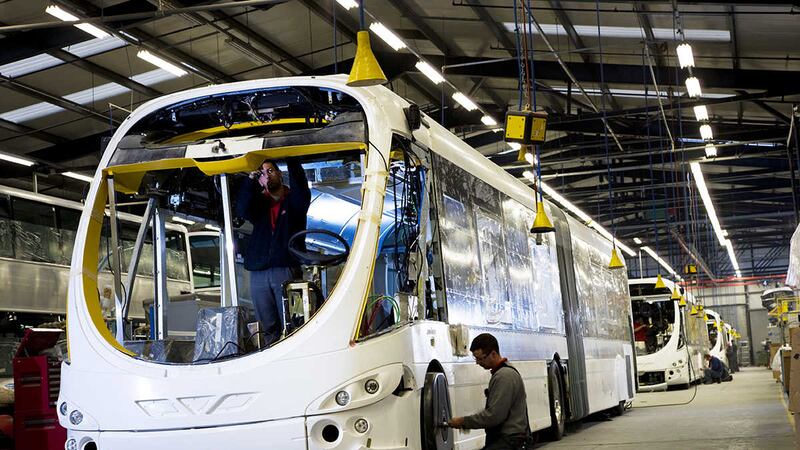MERCANTILISM was Europe’s unquestioned economic world view from the Renaissance until the late 18th century.
It stated that a country should export as much as possible and import as little as possible so that the king could pile up a big hoard of gold.
Wars were fought, empires were founded and continents were ravaged in the service of this apparently self-evident truth, before it slowly dawned on a group of Scottish and English philosophers that it was dangerous nonsense.
What a country actually had to do was export what it was best at making, import what foreigners were best at making and forget about big piles of gold, which were of no use to anyone.
The proof of this - Ricardo’s theory of comparative advantage - is one of the first things taught to pupils in an economics A-level.
It is a beautifully simple piece of reasoning that can be demonstrated on your fingers, yet it underpins the whole modern world view of peace and trade.
A Blackadder script by Jonathan Swift could scarcely convey that absurdity of all the very clever people who ran the world along opposite lines for centuries.
Which brings us neatly to Ballymena, where coach builder Wrightbus is upset at missing out on a Stormont contract.
The contract is for vehicles for the Belfast Rapid Transit (BRT) system, where glorified bendy-buses will masquerade as trams.
Real trams were ruled out in 2008 by former Sinn Fein transport minister Conor Murphy after lobbying from black taxi drivers - an apparent case of feudalism, which is beyond the scope of this article.
Murphy then visited Wrightbus to inspect the tram-like bendy-buses it was already exporting to Las Vegas, leading the company and everyone else to assume that BRT vehicles would come from Ballymena.
Fast-forward seven years, past a banking problem caused by some other very clever people who run the world, and the £19m BRT contract has been awarded to a firm in plucky little Belgium. Cue universal horror.
The Unite union described it as “inexcusable at a time when manufacturing faces an unprecedented crisis”, adding “public procurement must be used to stimulate demand in the local economy”.
TUV leader Jim Allister called it “shameful considering that a world leader on our doorstep [has] submitted a bid”.
Wrightbus founder Dr William Wright told the Belfast Telegraph it was “extremely unfortunate” and called on DUP transport minister Michelle McIlveen to “reverse this decision”.
But the officials at McIlveen’s Department of Regional Development, who ran the procurement exercise, had a crystal clear explanation for their decision. Nobody criticising that decision even attempted a criticism of the exercise, with Dr Wright saying he respected the procurement process.
First, European law required an open tender because the EU has a post-18th century philosophy on peace and trade.
Second, Wrightbus has specialised in its new London ‘Boris bus’ since 2008 and has adapted a version of that for Las Vegas.
This is what it submitted in its BRT bid but the Belgian design fitted the contract better, so it got the business.
Giving Wrightbus the business instead because it is ‘on our doorstep’ would be illegal.
It is pathetic how little awareness there is of this, let alone of the principles behind it.
The Unite union is currently arguing against a beggar-thy-neighbour policy on cutting corporation tax, yet it seems to believe in a beggar-thy-neighbour policy on blocking imports.
The TUV is currently campaigning for the UK to leave the EU and set up free trade deals with the rest of the world, yet it seems to believe free trade should only flow in.
Wrightbus exports to countries with indigenous coach builders, yet it seems to believe we should not import buses because we have an indigenous coach builder.
Everyone appears to be a mercantilist, except in maybe hoping for jobs instead of gold. But it simply does not work like that, nor should it.
Ricardo’s theory even shows that if Wrightbus was better than Belgium at making bendy-buses, it should still specialise in exporting its world-beating London buses.
However, that is from the second period of a sixth-former’s first economics lesson and we do not want to confuse our politicians, union leaders and captains of industry.
This week, the Republic is wrestling with a corruption scandal after an RTE sting filmed politicians asking for business bribes.
Here, a politically sensitive procurement exercise is conducted with rigorous objectivity and everyone is up in arms.
We have a long way to go to reach the late 18th century.
newton@irishnews.com









